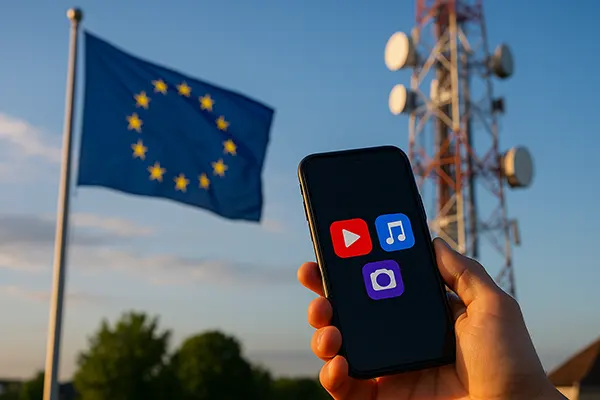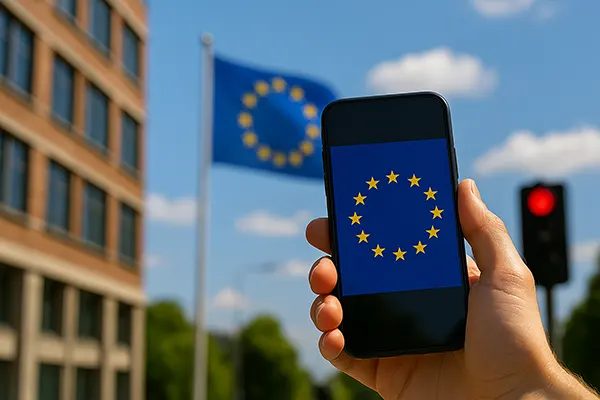Zero-Rating Offers from German ISPs: Innovation or a Threat to Net Neutrality?

In recent years, zero-rating practices by internet service providers (ISPs) in Germany have sparked intense debate across technology, legal, and consumer rights spheres. Zero-rating refers to the policy of exempting certain data from users’ data caps, allowing unlimited access to specific apps or services without it counting towards monthly limits. While some see this as a customer-friendly innovation, others argue it poses significant threats to net neutrality and fair internet access.
Understanding Zero-Rating Practices in Germany
Zero-rating has been employed by major German ISPs like Telekom and Vodafone, particularly through services like StreamOn and Vodafone Pass. These programmes allow users to stream music or videos from select platforms without affecting their data usage. On the surface, this can seem like a great benefit for consumers, particularly heavy media users.
However, the practice has raised legal and ethical concerns. The Federal Network Agency (Bundesnetzagentur) and European regulators have repeatedly questioned whether such schemes comply with the EU’s Open Internet Regulation. In 2021, for example, the European Court of Justice ruled that some zero-rating offers breach the principle of net neutrality.
At the heart of the issue is whether ISPs should be allowed to favour specific content providers by offering zero-rated access. Critics argue this gives a competitive advantage to larger platforms, while potentially sidelining smaller services or startups that cannot afford partnerships with ISPs.
Legal Framework and Regulatory Responses
Germany operates under the EU’s strict net neutrality regulations, which are designed to ensure all data is treated equally. The Body of European Regulators for Electronic Communications (BEREC) has emphasised that zero-rating, when combined with traffic management practices, can lead to discriminatory treatment of data streams.
In response, the Bundesnetzagentur has investigated zero-rating offers and taken steps to ensure compliance with court rulings. Telekom had to modify its StreamOn programme after the courts found it in violation of roaming regulations and net neutrality laws. The updated version imposes fewer restrictions and complies more closely with EU directives.
Despite this, there remains legal uncertainty. Some providers continue to experiment with similar services, carefully adjusting their terms to avoid outright bans while still trying to gain a competitive edge. As of February 2025, the Bundesnetzagentur continues to monitor the market for new developments and potential violations.

Impacts on Consumers and Market Dynamics
Zero-rating can be attractive to consumers because it seemingly offers “free” data access to popular services. For users on limited data plans, the appeal of unlimited Spotify or YouTube streaming without data charges is strong. However, this benefit may come at the cost of long-term consumer freedom and market diversity.
One key issue is reduced choice. If users are incentivised to use zero-rated apps, they may avoid exploring alternatives, even if other apps offer better functionality or privacy standards. This skews user behaviour and can reduce the market visibility of independent services.
Additionally, while larger providers can afford to strike zero-rating deals with ISPs, smaller platforms often cannot. This creates a two-tier internet, where exposure and accessibility are not based on merit or innovation, but on financial backing. Over time, such disparity could limit innovation and reinforce the dominance of a few tech giants.
Consumer Rights and Public Awareness
Consumer rights organisations in Germany have called for greater transparency and stronger regulations to protect net neutrality. Many users may not fully understand the implications of zero-rating offers and unknowingly accept terms that restrict their digital freedom.
Public campaigns by digital rights groups such as Netzpolitik.org and the Chaos Computer Club have highlighted the risks of unequal data treatment. Their efforts aim to inform the public and encourage a broader conversation about internet fairness and open access.
As awareness grows, there is a push for ISPs to offer more neutral, open-access plans without favouring specific services. By promoting digital literacy and user rights, civil society plays a key role in shaping a balanced and competitive internet landscape in Germany.
Looking Ahead: Regulation vs. Innovation
As the German internet market evolves, the challenge remains to balance technological innovation with principles of fairness and equality. Zero-rating might offer short-term convenience, but it raises valid concerns about long-term consequences for the digital ecosystem.
Policy-makers are now faced with a critical choice: should zero-rating be banned altogether, or regulated more stringently to ensure it aligns with net neutrality? Some experts argue for stricter guidelines that allow innovation but prohibit anti-competitive practices. Others believe innovation should not come at the expense of fairness.
In 2025, Germany is expected to revisit its digital infrastructure laws, with a possible amendment to zero-rating policies. Whether these changes will favour consumer rights or industry flexibility remains to be seen, but the outcome will undoubtedly shape the future of internet access across the country.
Expert Opinions and Public Policy
Leading tech analysts and policy advisors in Germany have expressed diverse opinions. Some view zero-rating as an opportunity to experiment with new pricing models, potentially increasing internet adoption among lower-income groups. However, many remain sceptical about its broader impact.
Organisations like the German Informatics Society advocate for stricter net neutrality enforcement, fearing a drift towards a corporate-controlled web. Meanwhile, think tanks such as Stiftung Neue Verantwortung recommend transparent public consultations to develop a shared regulatory approach.
As dialogue between stakeholders continues, Germany’s path forward will likely set a precedent for the rest of Europe. The decisions made in 2025 could influence digital rights, economic competition, and the core values of an open internet for years to come.
